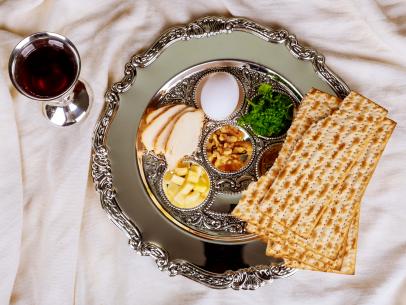Beloved Friends,
As I shared a few months ago, I have been engaged in developing a pedagogy of wellbeing. This work is part of a fellowship program sponsored by the Jewish experiential education think tank known as M2. My focus is on a pedagogy that cultivates curiosity as a pathway to wellbeing.
Curiosity embraces the fact that we are complex creatures living in a complex world. Curiosity is a pathway to wellbeing predicated on the fact that we do not know what we do not know. I believe that questioning, sprouting out of curiosity that seeks learning and growth, is fundamental to Judaism.
At our Passover seders, questions are actually built into the Haggadah. The questions are there to move us to retell the story of the Exodus and to derive new meaning from it. We do this every year precisely because there are so many lessons that spring forth based on the fresh eyes, fresh experience, and ever-changing worldview we bring to the story.
This Shabbat is called Shabbat Chol HaMoed Pesach, the Sabbath that occurs during the intermediate days of Passover. The Torah reading that is assigned comes from the Book of Exodus and picks up after the sin of the Golden Calf and the breaking of the first set of Tablets. Moses is distraught. He does not understand what has gone so wrong and how he as a leader has failed so miserably. So, Moses begins to ask God questions to learn, to understand, and to grow. In his questions, Moses recognizes that he has perhaps misunderstood God and the mission he was given at the Burning Bush. So, Moses asks to see God’s face. What Moses is really asking for is a check-in to understand better what has happened and what are the next steps he needs to take to bring healing to the people and to heal himself. God responds to all of Moses’s questions and ultimately God shows Moses God’s back. That is to say, God gives Moses a chance to look at the past and know how to move into the future. Questions cultivating curiosity even in moments of fear and despair are the pathway to emotional health and wellbeing.
Back to the Haggadah. Before telling the story of the Exodus, we have the portrayal of the four children whose questions, or lack thereof, define them. There is the Wise Child, the Wicked Child, the Simple Child, and the Child Who Does Not Know How to Ask. The verse upon which the response to each child is based is the same. It is the same to indicate they are actually one and the same person. The four children are us. We are complex people not defined in any singular way. At any given moment we can ask wise questions, meant to learn and understand, wicked questions meant to provoke, and simple questions because we truly are starting from scratch. And sometimes we struggle to even formulate the questions.
At the beginning of the Passover Seder, we break the middle matzah. Of the many meanings for me, the one most poignant is how the breaking of the matzah represents the brokenness in us and in the world. By asking questions we can begin to heal. By asking questions we can learn and grow. By asking questions we reject simplicity and embrace complexity. May this Passover, the Festival of Freedom, free us from snap judgments cultivating curiosity.
Chag Sameach,

